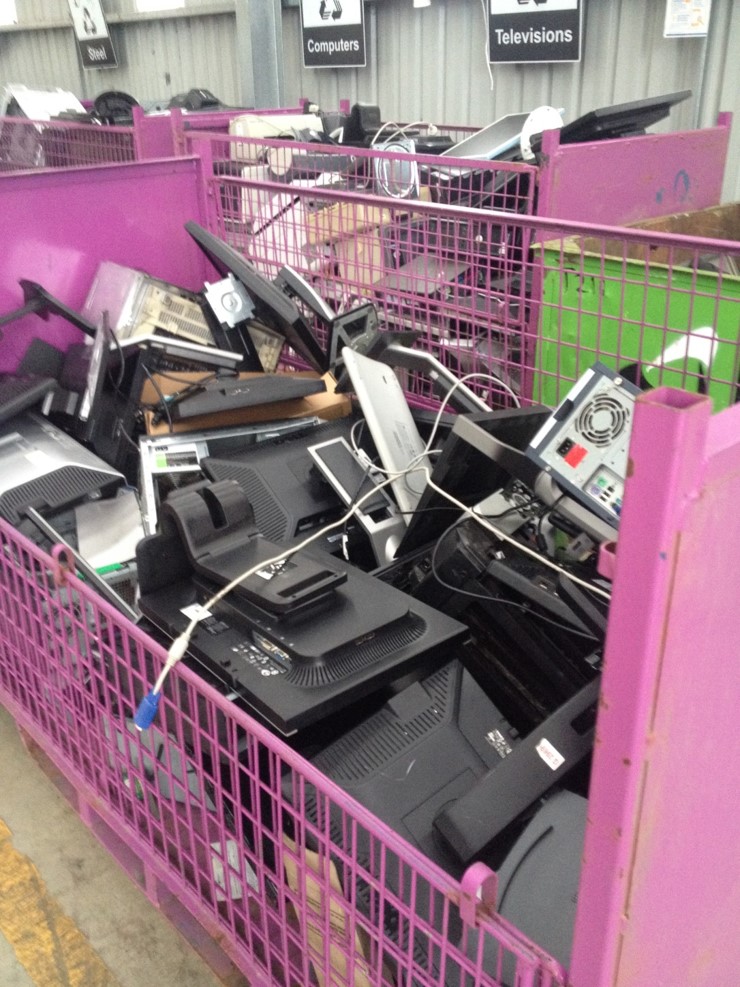How Product Stewardship Schemes are helping Tasmanian businesses reduce landfill costs
News and Events / News
Most of us do a great job utilising kerbside recycling – both at home and in our businesses.
But what about those tricky items that seem, by all accounts, unrecyclable?
Too often, these products (and the precious materials they contain) end up in landfill, which is bad news for our economy and the health of our planet. Come July 1st 2022, landfill charges are also set to rise following the introduction of the State Government Landfill Levy.
Who should be responsible for product waste and salvaging resources?
Consumers are increasingly aware of the impacts of climate change. And they have growing expectations of businesses to provide products and packaging that are environmentally sustainable.
So, it’s not surprising most consumers favour manufacturers and businesses that take a proactive approach.
The truth is, every step of a supply chain – from product creation to how consumers handle products and packaging at end-of-life – can be reimagined with sustainability in mind.
We all have a part to play in reducing how much waste ends up in landfill.
That’s why every business should explore opportunities to minimise product waste.
What are Product Stewardship Schemes, and how do they fit with the Tasmanian Landfill Levy?
As well as the usual kerbside and commercial recycling services, there are specialised options for those ‘tricky’ products. They’re known as Product Stewardship Schemes.
They provide a framework for the sustainable management of products and materials throughout their lifecycle, including at the end of their useful life and across the supply chain.
Everyone involved in designing, manufacturing, and selling products must ensure those products or materials are managed in an environmentally sound way.
In other words, it’s a shared responsibility.
Currently, the Australian Government oversees eight regulated Product Stewardship Schemes, including televisions, computers, printers, and motor oil. There’s also one voluntary accredited scheme for household batteries.
In addition to these, there are 18 various unaccredited schemes. Plus 13 more in development.
By participating in Product Stewardship Schemes as a Tasmanian business, and being a return point for products covered by the scheme, your business can help more Tasmanian’s to recycle right and avoid waste going to landfill.
From July 1st, the Tasmanian Government’s Landfill Levy of $20 per tonne of waste sent to landfill will commence. This fee will increase to $40/tonne after two years and be set at $60/tonne by 2026, bringing it in line with the other regional landfill levy charges already in place across Australia.
Businesses and consumers can minimise their own landfill-disposal costs by maximising what they recycle, re-use, or repair. Participating in recycling Product Stewardship Schemes, and telling your Tasmanian customers about this service, is a simple way to make the most of existing, nation-wide programs.
Wondering how these proactive schemes can benefit your business?
Schemes are based on the principles of a circular economy, where the precious resources used to make products are salvaged, repaired, recycled, or reused.
This means their value is retained for as long as possible and less waste ends up in landfill.
Why not support Product Stewardship Schemes by making your business a collection point for eligible products?
It’s simple to get started.
And your customers will appreciate the convenience of being able to return old or used products when buying new.
Best of all, promoting your support of these valuable schemes will highlight your eco-conscious brand values and attract more environmentally-motivated customers.
It’s a win-win scenario.
How can your business lead the way with Stewardship Schemes?
Do you sell any of the following?
If so, consider establishing a return point at your premises and be sure to tell your customers about the new service.
- Agricultural and veterinary chemicals
- Agricultural plastics
- Aluminium
- Batteries
- Coffee capsules and pods
- Computers and printers
- Globes and fluorescent tubes
- Mobile phones and peripherals
- Oil
- Oral care products
- Paint
- Pens, markers, and other writing instruments
- Pharmaceuticals
- Print cartridges
- PVC products
- Steel
- Televisions
- Tyres
Product Stewardship Schemes are partially funded by a Federal Government fee imposed on a product’s retail price.
Find out about the available schemes at the Product Stewardship Centre of Excellence.
What about other specialised recycling services?
If you’re a retailer, it’s worth getting in touch with TerraCycle.
Their innovative service takes care of a growing number of hard-to-recycle products.
You can find dedicated collection points in some Council offices and the University of Tasmania campuses. Plus, more commercial businesses across the state are extending these services to customers too.
Visit TerraCycle to learn more about their recycling options and how to make your business a collection point. Your collection could be available to your customers or simply used inside your business to reduce your own landfill waste.
Feeling inspired?
It’s no surprise that reducing packaging waste, recycling, and the right to repair are increasingly important concerns for consumers.
Think about how your business can take steps to reduce the amount of landfill waste it produces and how you can support your customers to do the same.
You’ll find some great ideas on our AT WORK page to get started.
Even small changes can add up to big results.
